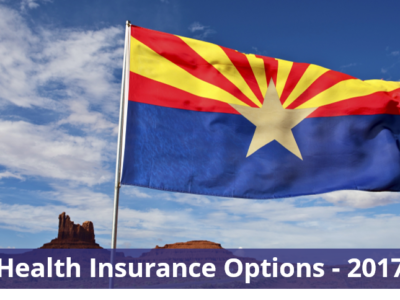
We will keep this page up to date as more information comes in!
160,456 people enrolled in individual market plans through the Arizona exchange during open enrollment for 2020 coverage, which is down about 5,000 people from 2018. Good news: Average premiums are expected to decrease slightly in 2021, even among the newest carriers to the Arizona market. We’ll discuss here what else is different compared to last year.
Some things haven’t changed:
Doctor networks continue to stay small: An ongoing trend since the start of Obamacare, many plans will cover an increasingly smaller percentage of doctors in a given area. That leaves the consumer with fewer choices and a greater chance of having to go out of network to get the care they need. This is a strategy used by carriers to keep costs down, but it leaves consumers financially vulnerable for shouldering those scary and sky-high out-of-network costs. It’s always smart to check every year if your doctor will remain on your network.
Premiums are still really expensive: While premiums decreased by 4% across the board, according to CMS, they are still too expensive for those who don’t qualify for premium tax credits to off-set the costs. We see markets stabilizing and more and more options designed to help individuals afford health insurance. Here are a few things to keep in mind that are new to 2021 or in the past year.
When to enroll: Open enrollment for 2021 coverage in Arizona will run from November 1 to December 15, 2020.
With new regulatory rules in place, employers have more flexibility to reimburse employees with cash-for coverage, meaning they can reimburse their teams for individual marketplace health plans. This is great news!
Here are the details on the two latest HRAs.
- ICHRA- individual coverage HRAs are going to be a game-changer. They are a flexible, customizible, tax-free option. Employees choose any plan they want from the individual marketplace to qualify for participation.
- EBHRA- excepted benefits HRAs allow for higher levels of employer contributions than flexible spending arrangements (FSAs) and the unused funds can rollover year to year. These can be used to cover the cost of copays, deductibles, or other costs not covered by the plan.
- QSEHRA- no longer the new kid on the block, this HRA has steadily grown in popularity.
Short term plans are also a new option, as of last year.
These short term, limited duration plans (STLDs) come with more restrictions, such as limits on preexisting conditions, and offer less coverage (i.e., good bye well-visits and maternity coverage), but their lower price point can be attractive to those that are relatively healthy and looking for more affordability.
What’s available for individual health insurance in Arizona for 2021:
Bright Health, Oscar, and Cigna joined the exchange in the Phoenix area for 2020; Phoenix now has five insurers offering plans in the exchange.
Ambetter
Health Net of Arizona (Ambetter from Arizona Complete Health): Expect a 2.89% average decrease (following a 6.3% decrease in 2020). Health Net also plans to expand its coverage area in Arizona in 2021.
BlueCross BlueShield of Arizona
0.14% average decrease (following a very slight increase in 2020). BCBSAZ will return to Maricopa County for 2021, offering coverage there for the first time since 2016. BCBSAZ plans will be available statewide.
Bright Health Plan
0.08% average decrease (Bright Health was also new to the market in 2020)
Cigna
3.32% average decrease (following a 22% decrease in 2020; Cigna’s plans were available off-exchange in 2018, but became available through the exchange as of 2020)
Oscar
5.71 average decrease (Oscar was new to the market in Arizona in 2020)
Affordable Alternatives You Should Know About
An increasing number of our customers are opting for alternatives to traditional insurance. Here’s a couple of our top picks. They might not be for everyone, but they are worth checking out and comparing to major medical plans on our platform.
Pivot short term plans: Pivot provides short term medical insurance solutions until a qualified major medical health plan is chosen, helping reduce your financial risk. Pivot plans are renewable 90 day plans which in most states can be automatically renewed 4 times without additional medical screening to provide up to 12 months of continuous coverage.
Faith-based: Faith-based Medi-Share has a state-wide PPO network available in 2020 managed by PHCS (Private Healthcare Systems, now owned by Multiplan). It’s smaller than some of the PPO networks in the past, but it does provide flexibility to see your doctors and will cover out-of-network expenses as long as it meets Medi-Share’s faith-based guidelines. Medi-Share won’t be for everyone, but is a worthy option to consider if it fits your personal convictions and lifestyle. Make sure to check out our Medi-Share review and compare it to other major medical plans on our website before you enroll.
Next steps: What’s my best option?
While more choices are a welcome change, hunting down and comparing all of these options can feel overwhelming. However, at TakeCommandHealth.com we help you compare all of your options side-by-side including off-exchange plans, marketplace plans, and faith-based options. You can use our award-winning tools to search for your doctors, check your prescriptions, and even simulate conditions and health needs to make sure you get the most of for your money.
With growing demand, we’ve also put together a bigger support team ready to help you tackle any issue. You can get started by chatting with us on our website or emailing us at support@takecommandhealth.com.
Once open enrollment begins, you can visit our website and we’ll walk you through your options. Our goal is to help you get the most out of your money and find the plan that really works for you and your family. Remember you have until Dec 15th to select a plan that starts Jan 1st, 2021.
Extra perks with Take Command Health
We’ve negotiated some pretty awesome deals for our members. Call a doctor 24/7 for $0, enjoy medical bill negotiation support, a personal health advocate, dental, vision, and pharmacy discounts, etc. These really help save money with some of the higher deductible plans.















